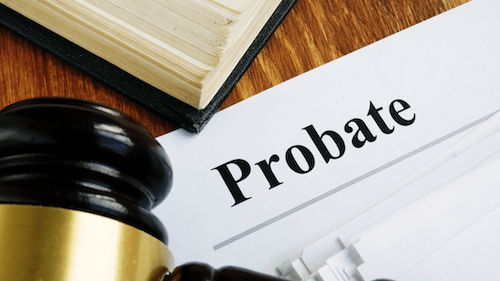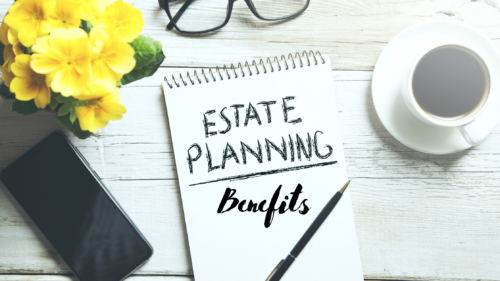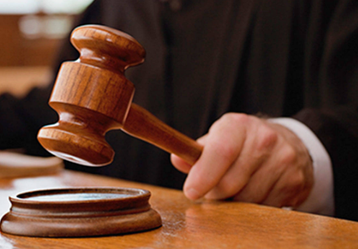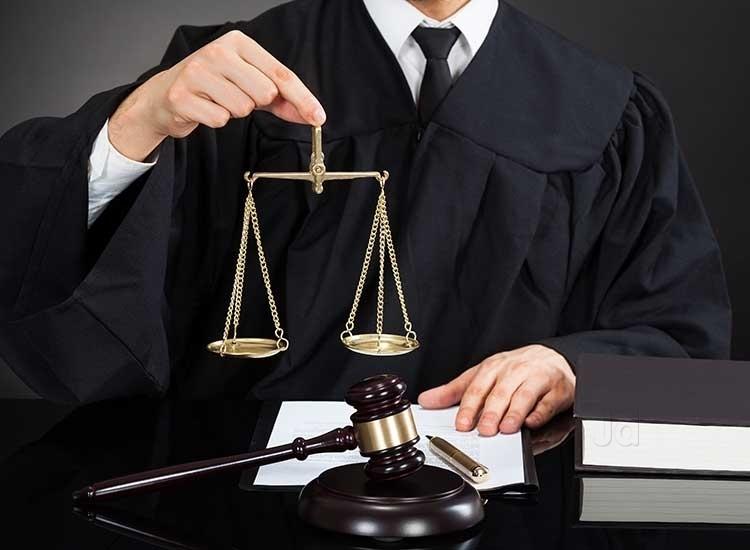Estate Planning Checklist: Breaking Down Estate Planning
Estate Planning Checklist: Breaking Down Estate Planning
An Estate Planning Checklist Of Things You Should Know
If you are like many Americans, we all have a “To Do List.” Sometimes, that list gets longer and longer with no end in sight. Oftentimes, it is easy to put off estate planning to get to those other things that are on your To Do List. People often procrastinate when it comes to estate planning because they feel that the whole estate planning process is daunting.
It is the goal of our office to make the estate planning process as easy as possible for our clients. So, we put together another list for you. It is not a “To Do List” but, it is a list of things that you should know if you are considering implementing an estate plan for you and your family. We have prepared an Estate Planning Checklist by identifying common questions, concerns, and issues that arise during the process.
What Is An Estate Plan?
The definition of an estate plan is different for everyone. The type of plan selected is often dependent upon the nature of the assets. In general, it is a plan that is put in place to make the administration of your estate an easier process. Your next question might be “What documents should be included in my estate plan?” The type of plan implemented is dependent upon the complexity of our estate. Our office prepares comprehensive estate plans for any size estate. A full estate plan will address both what happens if you become incapacitated and what happens if you pass away. Some of the core documents that are included in our estate plans are Trusts (and supporting documents), Wills, Financial Power of Attorney, and a Patient Advocate. Other documents included in your estate plan will be dependent upon your current situation and the type of plan you select.

What Is The Estate Planning Process?
Now that you know what an estate plan is, one of your first questions to an attorney might be “What is the actual process?” In our office we utilize a five-step process. Call our estate planning attorney and the first step is for you as the client to complete a worksheet. We use this worksheet to get a better understanding of your own unique situation. The worksheet also helps you to think of important issues that come up in the estate planning process. Some of these issues include deciding who you would like to have handle your financial affairs and healthcare if you were not able to do so.
The next step in the process would be a Family Estate Planning Session. The purpose of this meeting is to help you to understand the benefits of putting a plan in place. We also use the information that you provide on the completed worksheet to explain your options to you and to make recommendations to you based on your individual situation.
If you decide to go forward, the next step would be to design your plan. You choose the best options for your situation and your budget. Pricing depends on the options that you select. Consequently, we are unable to provide you with the cost of a plan until we have discussed, and you have selected your options. We would then prepare a unique plan that is specific to your situation. Once the documents were complete, we would schedule a signing meeting.
What Are Some Special Issues And Concerns That Arise During Estate Planning?
You may be asking “What are some other important issues that should be addressed in my estate plan?” Our office does not recommend utilizing an on-line plan. Essentially, DIY plans do not address all issues that may pertain to an individual situation. Our office recommends consulting an attorney who is experienced in estate planning that is able to issue spot and appropriately address the issue in your estate planning documents. Some common issues that are often missed when using a DIY plan are discussed below. Please note that this is not an all-inclusive list and you should consult with an attorney to discuss your specific needs.
If you have minor children, you will want to make sure that you designate who you would want to care for your children and how you would want that person to care for them. You also want to address what would happen to them in the event of an emergency and you (the parents) were unavailable. Other factors to consider are how and when you would want your children to receive their inheritance.
Maybe, you have a child with special needs that receives benefits. Without proper planning for a special needs child your child could be inadvertently disqualified from receiving their benefits due to an inheritance from your estate. A plan should be implemented to insure that any potential inheritance would not disrupt your child’s benefits.
If you have pets, then you will want to make sure that your documents include provisions for their care. You want to make sure that you identify who you would want to care for your pets. You would also want to make sure that you detail the financial support that you would want to make available to the new caretaker that you have named.
Many people in Michigan go hunting and consequently own guns. Have you thought about what would happen to your firearms in the event of your death? If you fall into this category, then you would want to make sure that you have proper planning in place to address what would happen to your firearms. Failure to do so may result in someone that you care about inadvertently committing the serious crime of unlawful possession of a firearm upon your death.
Maybe, you are a business owner. If so, it would be important to implement a business succession plan in addition to planning for your personal affairs. This may include simply addressing what would happen to the business in your personal estate planning documents if you were an individual owner of a business. More complex planning would likely be required if you shared ownership with other individuals.
Why Do I Need An Estate Plan?
One of the common questions I hear is “Why do I need an estate plan?” Depending on the type of plan that you choose, you can avoid probate. Probate is an often expensive, long, time-consuming, and public process.
The cost of implementing an estate plan often is far less than the cost of going through the probate process. In probate, there are administrative costs that include court fees and attorney fees if an attorney is hired. Without proper planning, your estate might incur unnecessary taxes. A well-written estate plan will help you to avoid probate. Thus, more money is kept in your estate to go to your heirs.
If you do not put a plan in place, then the State of Michigan has a plan for your estate. This is called “intestacy” which may result in an unintended recipient receiving your assets upon your death. By putting an estate plan in place, you increase the likelihood of keeping more money in your estate, you control who gets your estate and how it is distributed. It is also helpful to put a plan in place to make things easier on your family while grieving your loss.
The probate process can be long because you may be at the mercy of the judge’s docket. A busy docket can lead to increased timeframes of administering a probate estate. By implementing a plan that avoids probate, you can speed up the process of administering an estate. This helps to get money to your family more quickly.
Filings in probate court are a matter of public record. Anyone can go to the court, pull a file, and see what is in an estate. They can also see who is getting what from the estate. By putting a plan in place that avoids probate everything can be kept private.
How To Use This Estate Planning Check List
This Estate Planning Checklist is intended to help you make your first meeting with an attorney to be more productive. Understanding the estate planning process can help make you feel more comfortable in implementing your estate plan. You should select estate planning options that are consistent with your goals and are within your budget. Everyone’s situation is different. There is not a one-size fits all estate plan. Your estate plan should address the specific concerns and issues relating to your personal situation. You should implement an estate plan if you want to avoid probate, make things as easy as possible for your family, and be in control of who would manage your health and financial affairs if you were unable to do so due to incapacity or death.
POPULAR POSTS
What is Probate
Starting The New Year By Driving Drunk?
New Year’s Resolutions In The Face Of A Global Pandemic
Estate Planning For Your Family
Estate Planning Checklist: Breaking Down Estate Planning
Estate Planning Benefits
DUI Questions
Covid 19 And The Hubbs Law Group
Are You Haunted by a Mistake
About Andy And Colleen Hubbs
HUBBS LAW NEWSLETTER
Sign up to receive email updates straight to your inbox!










